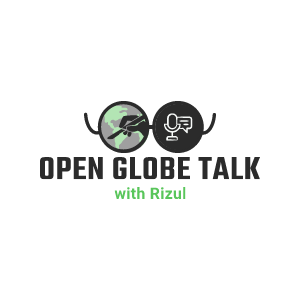June 3rd, 2023
Episode 36: Dr. Eve Higginbotham, SM, MD, ML
A discussion on
“Beyond the Ophthalmoscope: Health Inequities and Representation”
Resolving issues upstream to enhance diversity and inclusion
Video
Audio
Dr. Eve Higginbotham, SM, MD, ML
The premiere episode for Season 3 features highly regarded and experienced glaucoma specialist, Dr. Eve Higginbotham. As the inaugural Vice Dean for Penn Medicine Office of Inclusion, Diversity, and Equity, Dr. Higginbotham has much to share regarding health inequities and the importance of representation.
Education and Training
Dr. Higginbotham did her undergraduate and graduate work in Chemical Engineering at the Massachusetts Institute of Technology. She is a graduate of Harvard Medical School with ophthalmology residency training from Louisiana State University Eye Center. She completed her fellowship in glaucoma at the Massachusetts Eye and Ear Institute. Rounding out her education in health equity, Dr. Higginbotham also recently received her Master of Law degree from the University of Pennsylvania Carey Law School.
Key discussion points:
What led you to transition from chemical engineering to medicine and then ultimately ophthalmology?
Mentorship in medical school
“Entered Ophthalmology based on the kind of person I met rather than just the discipline” alone (even though the interest was there already in earlier years)!
Glaucoma
Background and interest in technology
Open-mindedness to new ideas
Growing up in Louisiana
Grew up after Jim Crow Laws in the South where institutions and transport were still segregated
“Unless we have people advocating, nothing will change”
Family background - growing up in a family of educators
Being in the Defense Health Board
How did you get started with this position?
Was recruited when Dr. Higginbotham was a Senior vice president of health sciences at Howard University
Serving at the highest level
Serving for “my father” who was in the Tuskegee Airforce
Gaps
Greatest contribution came from experience as a strategist at the systems level.
“How policy should be crafted to have the greatest impact”
Prioritizing eye health at the population level
Eye issues are associated with multiple morbidities
Eye health deserves to be part of normal healthcare!
DEI efforts
We can always do more but there is progress.
Ophthalmology is not a part of the core curriculum at any medical school. Medical students have to go out of their way to learn about the discipline. This is an issue of access.
One of the challenges is: maintaining momentum for this effort because not a core function of many organizations
Personal achievement:
Implementation of measures of accountability for departments if they are not making more progress with respect to diversity. This is key to any DEI work.
Why is DEI important?
US is becoming more diverse each year
Younger generation in marginalized populations have younger populations than the dominant population
Life expectancy for underserved populations remains similar around the world. This means that we have issues with health equity around the globe and thus DEI needs to be a global effort.
Importance of inclusivity, transparency, respect, and trust within the organization. Everyone can benefit from these attributes.
Importance of Law education in medicine
Populations impacted by policies that affect eye health (ie., Medicaid)
Policy effect on equity
Interrogating the legal literature for solutions in the future!
Examples of applying how law education applies in medicine.
Hear Dr. Higginbotham’s talk at AAO to learn more about population health!
Episode-based Resources:


